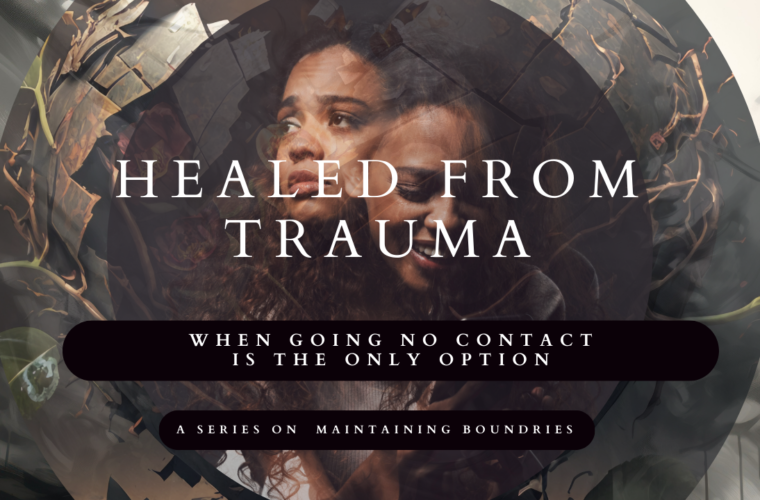Trauma can have a profound impact on an individual’s mental and emotional well-being, leaving scars that are not always visible. For some, the path to healing involves making difficult decisions, and one such choice that often emerges is going “no contact.” This strategy, while not easy, can be a crucial step towards reclaiming one’s life and finding healing after enduring traumatic experiences.
Understanding No Contact:
No contact refers to the deliberate decision to cease all communication with individuals who have played a role in causing emotional, psychological, or physical harm. This can include family members, friends, or romantic partners. The concept gained prominence in the context of toxic relationships, where maintaining contact can perpetuate a cycle of abuse and hinder the healing process.
Recognizing the Need for No Contact:
- Repeated Emotional Harm: Individuals who have experienced trauma may find themselves repeatedly subjected to emotional harm by those around them. This harm can take various forms, such as manipulation, gaslighting, or verbal abuse. Recognizing these patterns is crucial in understanding when no contact may be necessary.
- Lack of Accountability: In some cases, the individuals responsible for the trauma may show little to no accountability for their actions. Without acknowledgment, apology, or a genuine effort to change, the survivor may feel compelled to cut ties to protect their well-being.
- Continued Threat to Safety: Physical and emotional safety is paramount. If maintaining contact poses a continued threat to an individual’s safety, whether through the risk of violence or ongoing emotional distress, going no contact becomes a necessary step towards self-preservation.
The Healing Journey:
- Establishing Boundaries: Going no contact is an act of setting clear boundaries. Establishing and maintaining these boundaries is essential for personal growth and healing. It allows survivors to create a safe space where they can focus on their well-being without interference from those who may have caused harm.
- Seeking Professional Support: Healing from trauma often requires professional assistance. Therapists, counselors, and support groups can offer valuable guidance and support throughout the process. Having a strong support system is crucial in navigating the emotional challenges that may arise during the healing journey.
- Self-Reflection and Growth: Going no contact provides an opportunity for self-reflection and personal growth. It allows individuals to focus on their own needs, values, and aspirations without the influence of toxic relationships. This period of self-discovery is instrumental in rebuilding a sense of identity and purpose.
Choosing to go no contact is a courageous decision that acknowledges the importance of prioritizing one’s mental and emotional well-being. While it may be a challenging path, it can lead to profound healing and personal growth. Seeking support, establishing boundaries, and engaging in self-reflection are crucial components of the journey towards healing from trauma. Ultimately, going no contact empowers individuals to reclaim their lives and build a future free from the shadows of past pain.




